
Professional Writing MA
Forge a successful career in professional writing.
Course overview
Develop the skills to forge a career in writing. On this engaging Professional Writing course, you’ll learn to craft a variety of writing forms, including fiction, poetry and non-fiction, as well as magazine features and marketing copy, for a range of competitive and fast-moving industries.
Immerse yourself in the literary world as part of Falmouth’s lively community of writers and visiting speakers. Learning from active professionals, you’ll study and experiment with all forms of the written word and develop core skills across areas including genre writing, narrative structure, pitching and presenting ideas, research and self-promotion. Graduating with a portfolio and an accomplished working style, you’ll be primed to tackle the industry head on.
Study at Falmouth:
- Explore a broad range of disciplines, developing the skills you need to succeed as a professional writer
- Be guided by our team of writers, publishers, editors and industry professionals
- Join a supportive campus writing community, surrounded by innovators from different disciplines in a region rich with history, arts and culture
- Be inspired by our guest speaker programme, which has previously featured Patrick Gale, Nina Mingya Powles and Raynor Winn, as well as literary agents, editors and publishers

Interested in studying this Master's course? Join our virtual Q&A on 12 March.
Find out moreCourse details
Throughout this Professional Writing MA course you’ll be challenged to experiment and develop your voice whilst writing for a broad range of contexts. Building on a foundation of creative problem solving, critical thinking and analysis, you will learn to articulate your ideas clearly in a variety of professional scenarios including pitching and presenting work to industry.
From the moment you join the Professional Writing MA, you will begin to develop the skills you need to practise as a professional writer and will be supported to explore a variety of different fields.
You will develop a broad range of creative, practical, critical, cognitive and intellectual skills, which will provide you with a comprehensive understanding of current practices in your specialist area and enable you to recognise and understand opportunities that exist across the contemporary writing and publishing industries.
You will learn how to operate independently and to exercise the advanced critical judgement needed to negotiate, develop and complete a sustained writing project to professional standards.
Modules
Telling Good Stories
This module introduces you to the structures of good storytelling and encourages you to explore and develop core writing skills and key techniques such as character development, point-of-view, use of time and space, and genre conventions through extensive reading and analysis of a range of literary or creative forms, and through the application of these techniques in your own writing.
Making a Living 1: Professional Contexts
This module introduces you to the skills needed to operate across the professional writing industries. You will learn what it means to work a ‘portfolio career’ and you will have the opportunity to discuss and practice the core skills of such a career, such as interviewing techniques, reviewing, pitching, performance, developing writing workshops, purpose-led storytelling and effective uses of social media.
Creative Writing Careers: Building a Portfolio
Building on your learnings from the previous modules, you will begin to develop a significant idea for publication for which you will produce an industry-standard portfolio of material that is ready to be submitted to an appropriate professional body, such as a publishing company or literary agent. This might include a synopsis, market or audience analysis, chapter outlines, a cover letter, cover copy or an introduction.
Making a Living 2: Writing for Business
This module gives you the opportunity to explore and develop the research, writing and editing skills that go into writing for business, non-profit organisations, and for editorial publications including newspapers, magazines and websites. You will produce a portfolio that spans a range of formats and contexts, from press releases to feature articles and web copy.
Final Project
In this module you will work on an individual project, which builds on the work completed in previous modules. Each student is allocated a supervisor who is a specialist in the appropriate field to supervise the broad development of the project, setting deadlines and advising on areas of possible improvement. An essay will contextualize your work regarding current practice and theory.
We regularly review course and module content to ensure our students receive a high-quality and rewarding academic experience. As such, there may be changes made to the curriculum which are not immediately reflected in the content displayed on our website. Optional modules may be updated to maintain the best experience. Any students or applicants affected will be informed of approved changes directly.
From module information to course aims and assessment criteria, discover the full course details.
How you'll learn & be assessed
This 45-week Professional Writing course covers 3 study blocks and brings together seminars, workshops and your own self-managed practice. You'll work individually and in teams, collaborating with others, developing your own projects and business ideas, and giving and receiving feedback.
- Assessments are coursework based, consisting of portfolios, reviews, creative and practical work, as well as presentations and pitches.
- Formative feedback is delivered throughout the modules, in workshops, tutorials and via the Learning Space. Summative feedback is delivered at the end of every assessment via Turnitin.
Facilities
-
Digital labs, lecture theatres and seminar rooms.
-
Libraries housing 140,000 books, 17,000 DVD and video titles, and exhaustive electronic and journal resources.
-
The Lighthouse – a dedicated writers' room and events space
-
The Soundhouse – podcasting facility
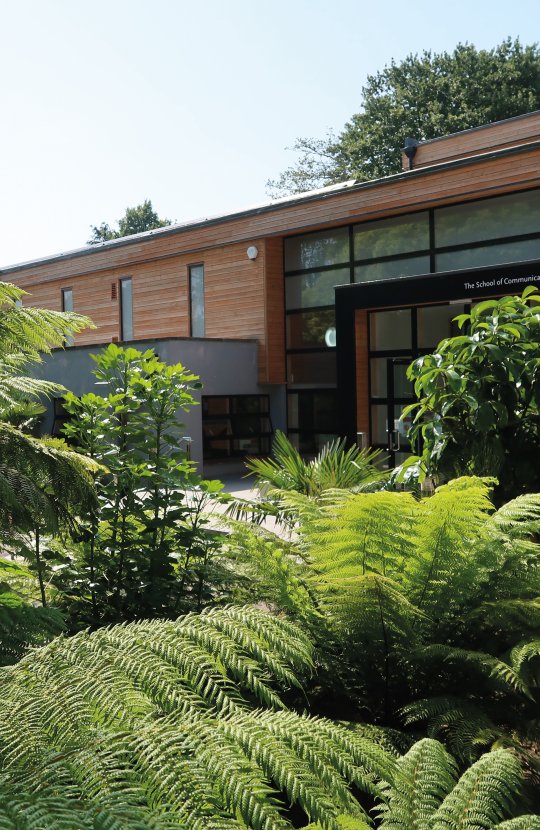
Virtual tour
Discover where you’ll spend your time as a student with our 360° tour, showcasing our facilities, accommodation, town and scenery.
Staff
Teaching staff on the MA Professional Writing include award-winning publishers, novelists and writers of non-fiction, published poets, brand communicators, copy-writers, journalists and reviewers.
Some members of staff only teach on specific modules, and your course might not feature every staff member who teaches on the course.
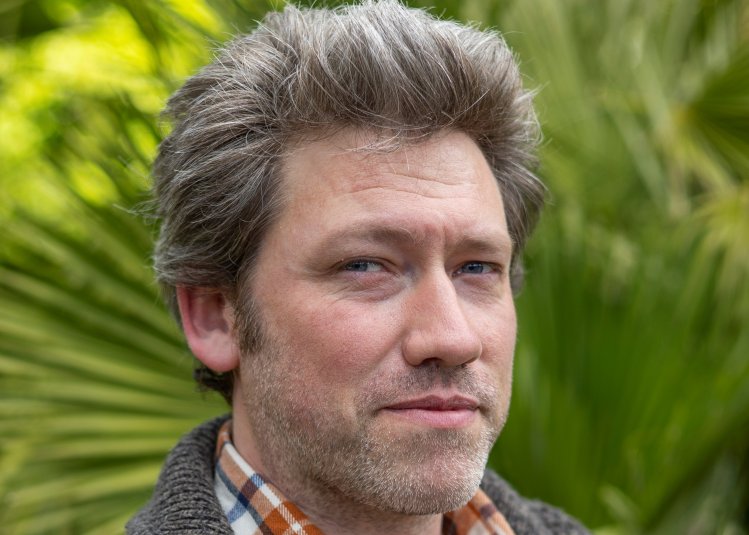
Dr Luke Thompson
Course Leader, MA Professional Writing
Luke is a writer and publisher from Cornwall. His interests include human-animal relationships, smal...

Dr Marshall Moore
Course Leader and Senior Lecturer
Dr. Marshall Moore hails from North Carolina and relocated to the UK in 2020 after living and workin...

Wyl Menmuir
Lecturer, Creative Writing
Wyl Menmuir is an award-winning author based in Cornwall. His 2016 debut novel, The Many was longlis...

Nicola Coplin
Lecturer
Nic has taught at Falmouth University since 2013. She trained in acting at the Hub Theatre School in...
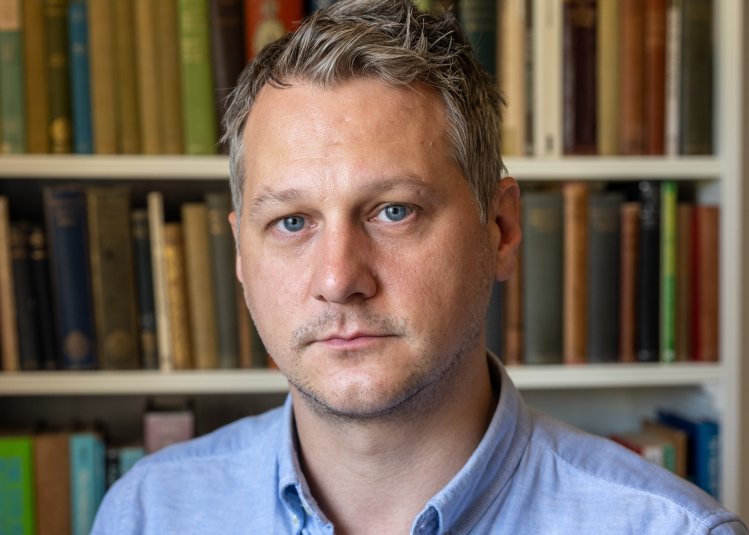
Dr Adrian Markle
Interim Course Leader, BA(Hons) Creative Writing and BA(Hons) English with Creative Writing
After joining the course team in 2019, Adrian became the Interim Course Leader for BA(hons) Creative...

Clare Howdle
Associate Lecturer: Professional Writing
From writing copy for Discovery Channel as a fresh new graduate, to launching independent surf lifes...
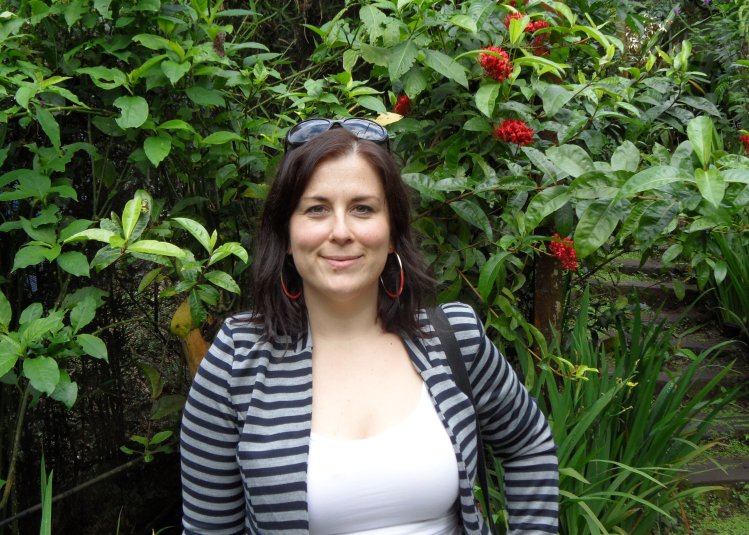
Dr Jo Parsons
Senior Lecturer in English and Creative Writing
Dr Jo Parsons specialises in popular literature and culture from the Victorian period to the present...

Got a question about this course?
If you want to know more about the course structure, our application requirements or what our graduates have gone on to achieve, our friendly course team is here to help.
Chat to AndyStories from our community

Resident Evil 9 and the return of playable fear: Why Horror games matter more than ever
27 February 2026
This article was written by Dr Eoin Murray, BA(Hons) Creative Writing lecturer and organiser of Falm...
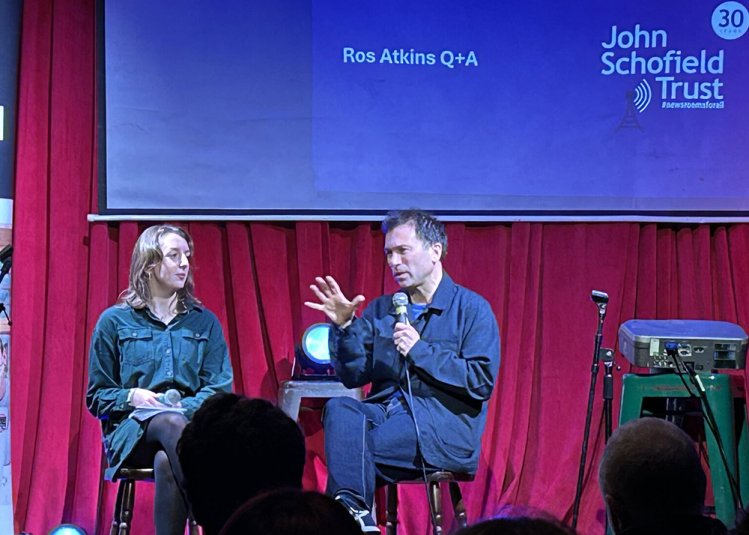
Journalism & Creative Writing charity partner host media masterclass in Falmouth
27 February 2026
The John Schofield Trust, a national charity which partners with Falmouth University, provides mento...
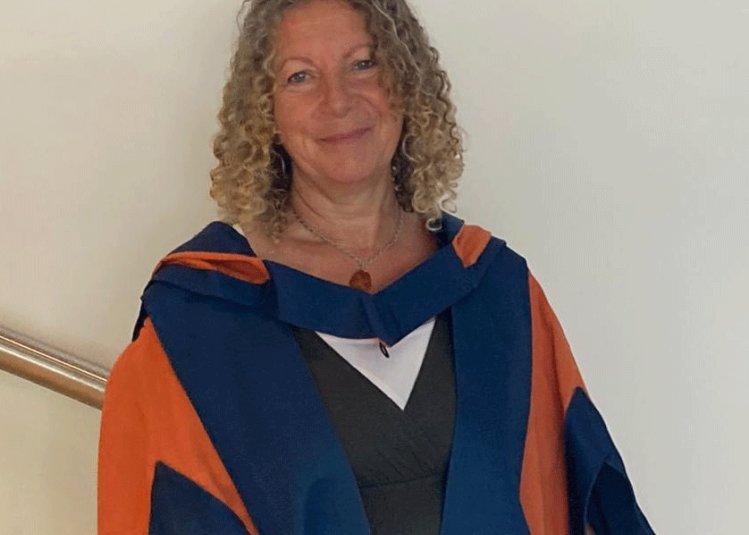
English lecturer edits the latest instalment of the British Library’s Tales of the Weird series
20 February 2026
After studying Catherine Crowe’s work for many years, authoring Catherine Crowe: Gender, Genre, a...
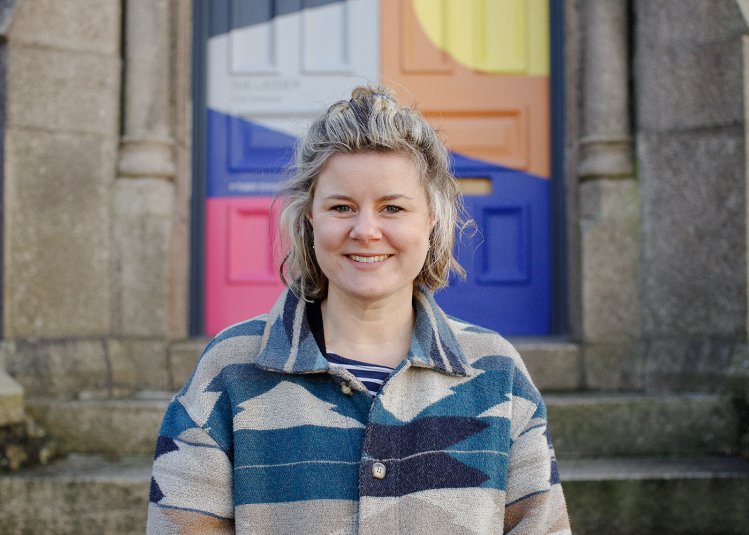
Falmouth graduate leads communications campaign for Redruth Town of Culture bid
02 February 2026
MA Communication Design graduate Bethia Naughton-Rumbo has spent fifteen years as a marketing consul...

MA Professional Writing lecturer signs deal with Picador to publish new book set in Cornwall
28 January 2026
Just a few months after his short story was published in the 2025 edition of Best British Short Stor...
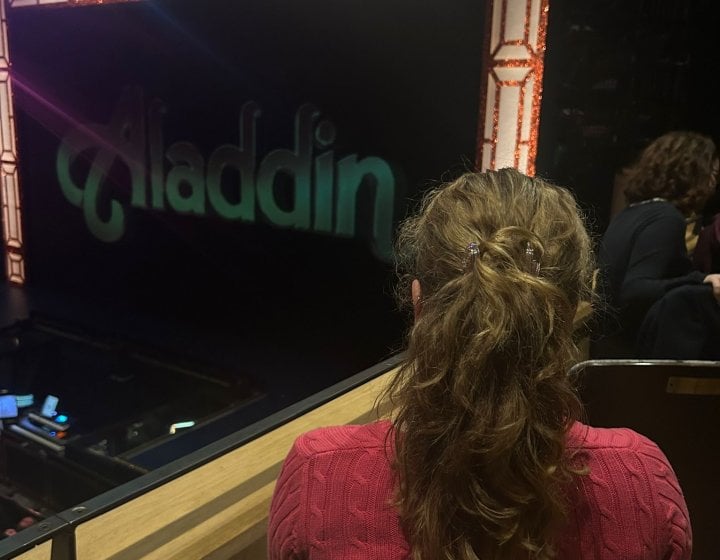
Why I chose to study Journalism & Creative Writing at Falmouth
07 January 2026
Journalism & Creative Writing student, Marla discusses why she chose to study at Falmouth.
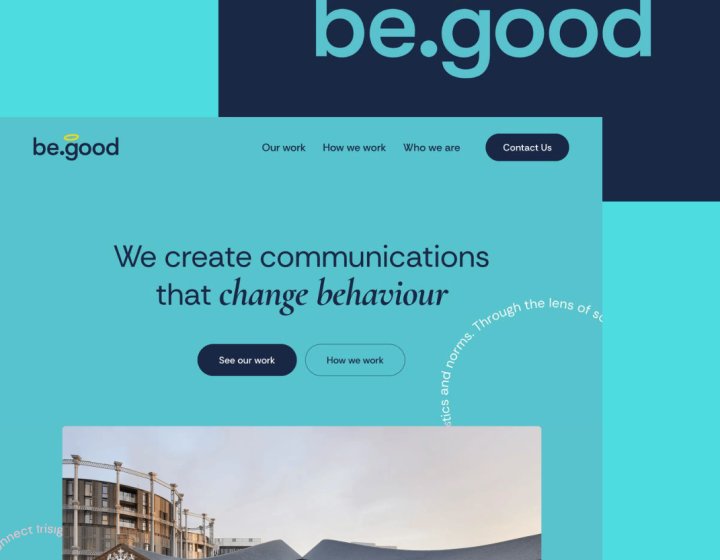
Be Good launches new identity and website
05 December 2025
Be Good, Falmouth University’s staff-led and student-driven creative agency, has launched a new we...

The differences between Falmouth’s creative content, marketing and media courses
27 November 2025
If you’re an aspiring storyteller with a keen interest in digital platforms, then you may be think...

Finding new direction with an online master’s in Graphic Design
26 November 2025
After almost twenty years working across freelance, agency and in-house roles, Filip Korić decided ...

Creative Writing alumna releases dark academia romantasy with HarperCollins UK
21 November 2025
The Ordeals, the latest novel by bestselling fantasy author and English & Creative Writing BA(Hons) ...

Creative Writing lecturer co-writes new horror film set in Cornwall
14 November 2025
Falmouth University’s Sound/Image Cinema Lab (S/ICL) and Creative Writing BA(Hons) lecturer, Craig...

Students collaborate on Made in Redruth newspaper
13 November 2025
Falmouth students across three courses have worked together to write and illustrate ‘Made in Redru...

Meet the award-winning travel writer making a career of documenting his experiences
11 November 2025
“I wouldn’t have landed this job or won my award without the Journalism MA”, says Falmouth gra...
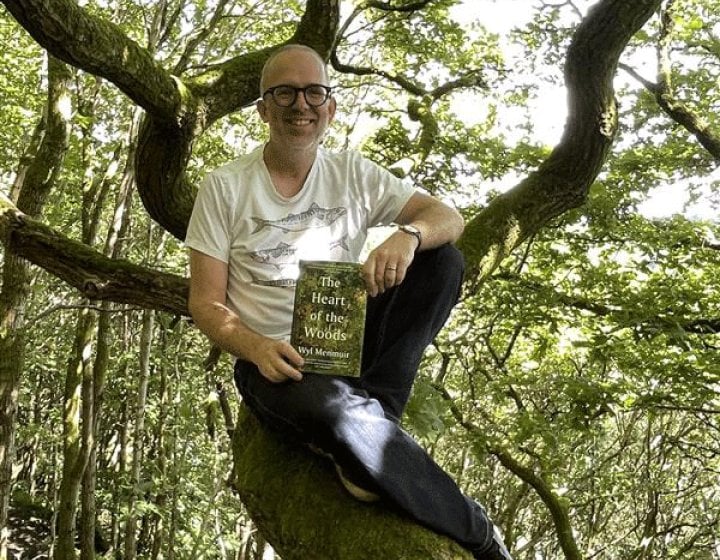
Professional Writing lecturer on his award-winning novels and short stories
24 October 2025
Falmouth’s award-winning, Man-Booker nominated Professional Writing BA lecturer, Wyl Menmuir, has ...
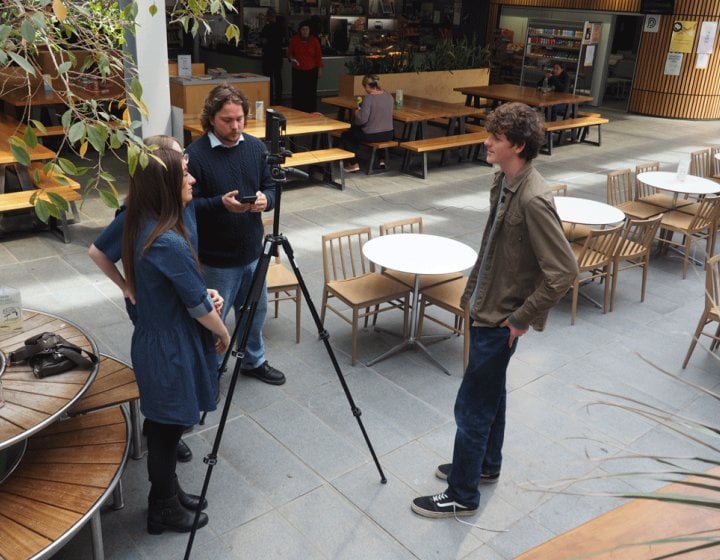
Journalism students and lecturers host school pupil journalism event with local MP
07 October 2025
Falmouth University’s journalism newsroom was buzzing last month as local school students grilled ...
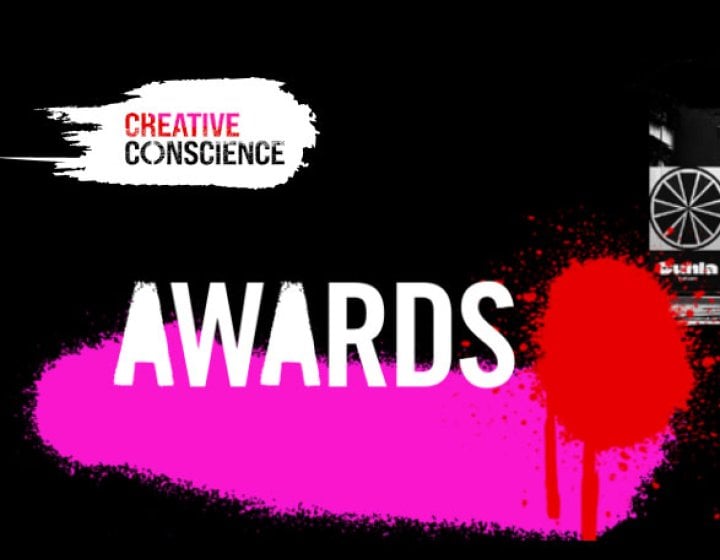
Students win big at Creative Conscience Awards 2025
07 October 2025
Eight students have been awarded the top awards at this year’s Creative Conscience Awards, with th...
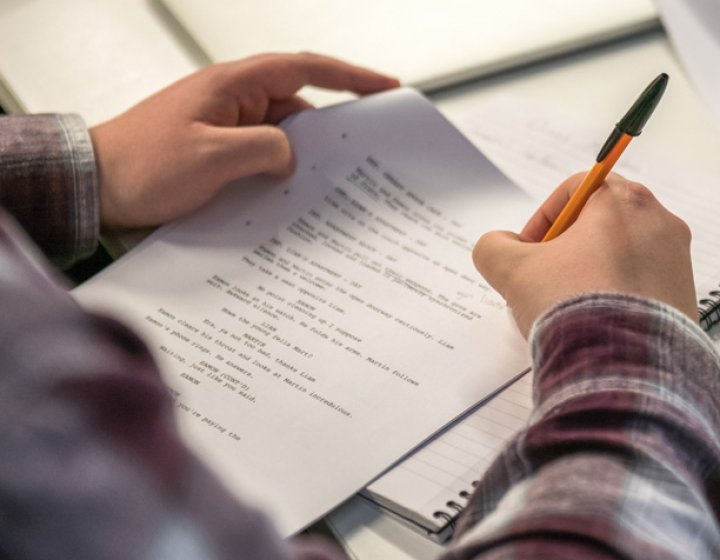
Comedy Writing graduate’s script picked up by prime-time production company
23 September 2025
When writer Andy Thompson joined Falmouth’s online Comedy Writing master’s in 2020, he never exp...

From marketing student to business owner: Meet Maeve Jarret
15 September 2025
After building in-demand skills in social media marketing, SEO practices, data analytics and copywri...

“AI makes the value of human storytelling clearer than ever”: Falmouth online tutor on embracing our differences
02 September 2025
With a rich and varied educational and industry-facing background, creative Elizabeth Gleave brings ...

Studio Kiln: the Falmouth alumni refreshing Vinted’s global identity
20 August 2025
Nathan Smith and Charlie Hocking are the creative minds behind Studio Kiln, a design studio in Penry...
Careers
Professional Writing graduates have become novelists, copy and content writers, writers for script and screen, editors and editorial managers, have worked freelance and for companies including branding agencies and streaming services.
How to apply
Have a question?
To find out more about this course, how you'll learn and what funding is available, get in touch with our friendly Course Advisors using our online form:
Apply now
Ready to apply for postgraduate study? You can apply online by clicking the button below.
After you apply, you’ll receive a login for the Falmouth Applicant Portal, we’ll use this to request anything we need from you and to update you on the progress of your application. You might be asked to submit some work, and the course team might contact you to discuss your application.
We welcome applications from those with relevant equivalent Level 6 qualifications. Our typical applicants hold an undergraduate degree of 2:2 or above, or equivalent experience and a demonstrable interest in the subject.
You will need to upload a minimum of one piece of writing, such as a short story, a screenplay, a report, journalism, an excerpt from a novel, website copy or blog/diary/journal entry. Your submission should be no more than 20 pages in total.
We’ll also welcome your application if you have formal or 'certified' learning (such as training courses not run by universities or colleges) and learning from work experience or self-study. This is called Accreditation of Prior Learning (APL), and should have been gained within the last five years, and be equivalent to the learning outcomes of our minimum entry qualifications.
APL applicants using experience to apply should note there is an application fee for entry with advanced standing or with exemption from specific modules or credit.
If English isn’t your first language, you'll need to demonstrate English language skills that are sufficiently developed for successful completion of your studies. We accept a range of recognised English language qualifications that are equivalent to the International English Language Testing System (IELTS) Academic minimum score of 6.5 overall, with a minimum of 6.0 in Speaking, and a minimum of 5.5 in Reading, Writing, and Listening.
International applicants who require a student visa to study in the UK must take a recognised language test that is approved and vouched for by the University. Our Applicant Services Team can help with any questions you may have about study visas or suitable language tests.
Fees, costs & funding
Tuition fees
£10,950 per year – full-time UK (£250 acceptance fee payable. This is deducted from tuition fees)
£19,950 per year – full-time EU/international (£500-£2,500 acceptance fee payable depending upon your status. This is deducted from tuition fees)
£9,200 per year - full-time UK (£250 acceptance fee payable. This is deducted from tuition fees.)
£17,950 - full-time EU/international (£500-£2,500 acceptance fee payable depending upon your status. This is deducted from tuition fees)
Tuition fees for September 2027 will be confirmed in summer 2026.
Tuition fees are set annually and are subject to review each year. The University may therefore raise tuition fees in the second or subsequent years of a course, in line with inflation and/or the maximum permitted by law or Government policy. Students will be notified of any changes as soon as possible.
The figures above don't include accommodation and living costs
Typical course costs
Recurring annual costs
Books. Course books are available from the library but there are some core texts, which, should you wish to buy them, would cost approx. £60-100.
One-off costs for the duration of the course
You do not need any specific software, but a reasonable home or work computer and standard wifi will be required for this course.
If you need to bring equipment or materials with you, these will be outlined in your Welcome Letter.
To engage in the digital learning activity, although you will be able to access IT suites on campus, you will benefit from a laptop to access the platforms and tools we use. You will be provided with free access to the Microsoft Office suite, (including Word, Excel and PowerPoint) while you study at Falmouth.
Funding and scholarships for postgraduate students
There are loans, scholarships, awards, graduate discounts and alternative funding sources for domestic and international postgraduate students. Read about them on our Postgraduate Funding page.
Find out about funding
Ask a student
What better way to find out about life at Falmouth University than by asking our current students?
From course details and academic support, to the social scene and settling in, our students are ready and available to answer any questions you might have. Simply set up your account, send them a question and they'll get back to you within 24 hours.
Speak to an advisor
Do you have questions about the course or studying at Falmouth? Fill in our simple online form and we'll get in touch to support your application journey.
Submit form
Similar courses

Writing for Script & Screen MA (Online)
Gain the writing techniques, industry know-how, professional skills and experience of collaborative ...
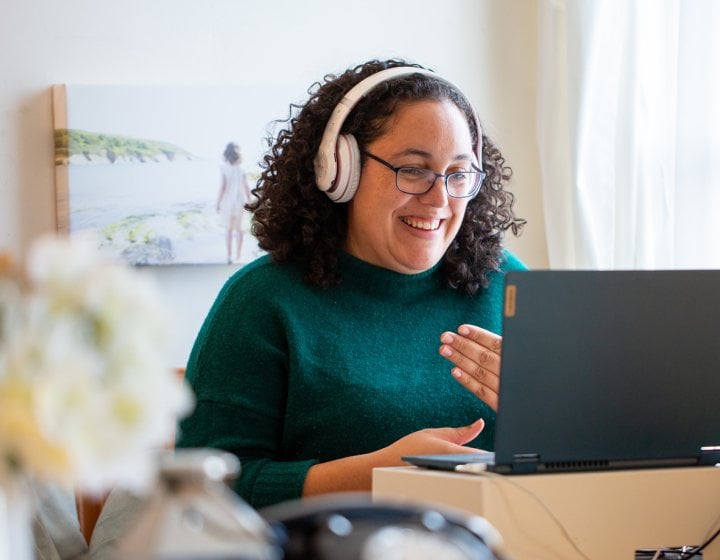
Comedy Writing MA (Online)
Get the skills, tools and industry insights to push your projects to the top of the commissioning ed...
